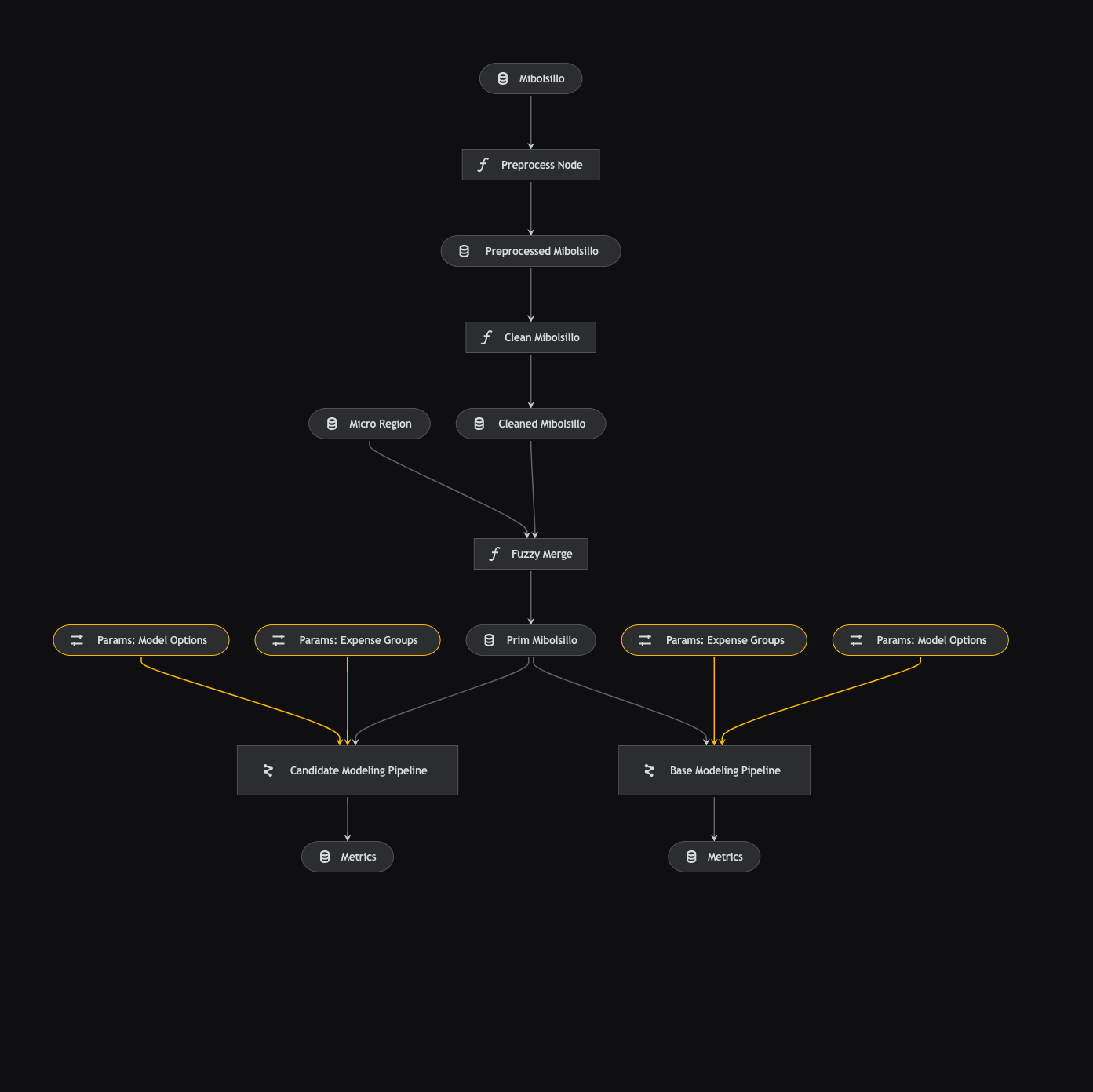MLops Poc Project
This project is a proof-of-concept (PoC) for MLops (Machine Learning Operations). It utilizes the Brazilian Credit Card Spending dataset from Kaggle. The goal of this project is to demonstrate the implementation of MLops principles and practices in a real-world scenario.
Key Features:
- Data preprocessing: The dataset is preprocessed to handle missing values, outliers, and feature engineering.
- Model training: Various machine learning algorithms are trained and evaluated to find the best performing model.
- Model deployment: The selected model is deployed using a docker.
- Monitoring and maintenance: In theory (given new data), the deployed model can continuously monitored for performance and retrained periodically to ensure accuracy.
This project serves as a starting point for implementing MLops practices in credit expense category prediction. It provides a framework for handling data, training models, and deploying them in a production environment.
For more information, refer to the project documentation and codebase.
Take a look at the Kedro documentation to get started.
- Understand business context 00_problem_proposition
- Frame the DS problem 00_problem_proposition
- Explore the data 01_Explore
- Establish: Baseline, metrics and Models 02_Modeling
- Report you results 03_Report_Results
- Design of solution for future pipeline requirements 04_System_Design.md
In order to get the best out of the template:
- Don't remove any lines from the
.gitignorefile we provide - Make sure your results can be reproduced by following a data engineering convention
- Don't commit data to your repository
- Don't commit any credentials or your local configuration to your repository. Keep all your credentials and local configuration in
conf/local/
Create a new conda/mamba environment or read the official documentation
conda create -n mlops python=3.10 -y
or
mamba create -n mlops python=3.10 -c conda-force -y
Activate your environment
conda activate mlops
Declare any dependencies in requirements.txt for pip installation.
To install them, run:
pip install -r requirements.txt
More on [official documentation]
kedro package
pip install dist/brazilian_credit_card_spending-0.1-py3-none-any.whl
Install Kedro Docker
pip install kedro-docker
Generate a Dockerfile
kedro docker init
Build a Docker image, It will create a Docker image with example:latest name.
kedro docker build
Run a Kedro project in a Docker Environment
kedro docker run
You can run your Kedro project with:
kedro run
Have a look at the files src/tests/test_run.py and src/tests/pipelines/test_data_science.py for instructions on how to write your tests. Run the tests as follows:
pytest
To configure the coverage threshold, look at the .coveragerc file.
To see and update the dependency requirements for your project use requirements.txt. Install the project requirements with pip install -r requirements.txt.
Further information about project dependencies
Note: Using
kedro jupyterorkedro ipythonto run your notebook provides these variables in scope:catalog,context,pipelinesandsession.Jupyter, JupyterLab, and IPython are already included in the project requirements by default, so once you have run
pip install -r requirements.txtyou will not need to take any extra steps before you use them.
To use Jupyter notebooks in your Kedro project, you need to install Jupyter:
pip install jupyter
After installing Jupyter, you can start a local notebook server:
kedro jupyter notebook
To use JupyterLab, you need to install it:
pip install jupyterlab
You can also start JupyterLab:
kedro jupyter lab
And if you want to run an IPython session:
kedro ipython
To automatically strip out all output cell contents before committing to git, you can use tools like nbstripout. For example, you can add a hook in .git/config with nbstripout --install. This will run nbstripout before anything is committed to git.
Note: Your output cells will be retained locally.
Further information about using notebooks for experiments within Kedro projects.
Further information about building project documentation and packaging your project.
